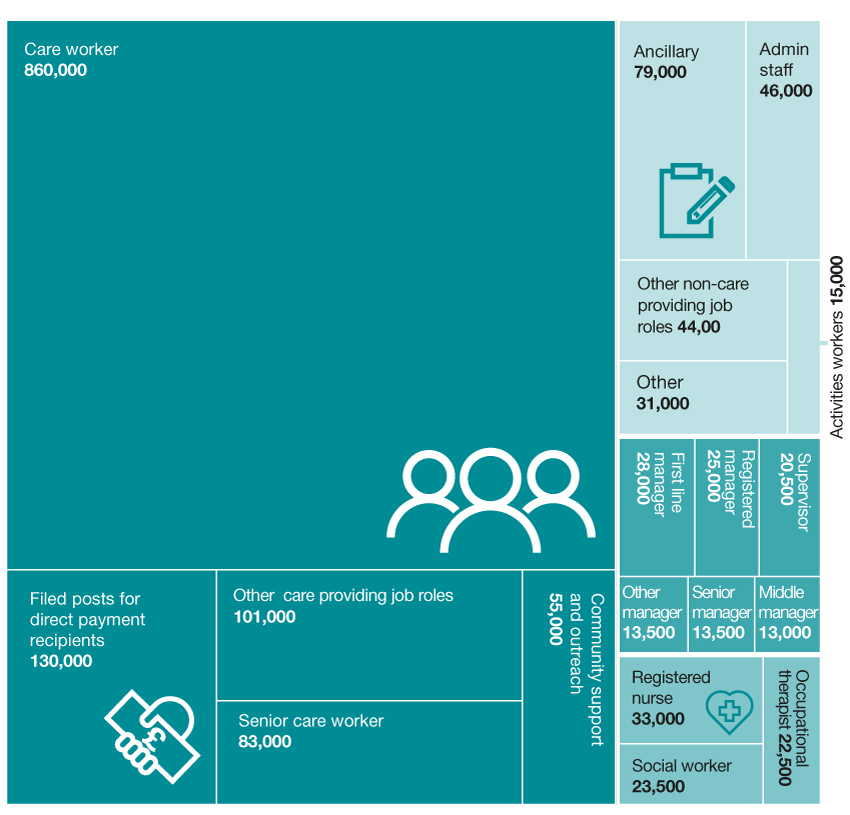Supporting resources
About the strategy
Implementing the Strategy
-
Action in focus highlights how this national strategy is making a local impact. Read our latest update and take a look into some of the transformational work coming out of the Workforce Strategy. January 2026
-
One year anniversary update July 2025
-
Infographic showing the journey in year one, highlighting progress of some of the 56 recommendations
-
Video to mark the progress one year on. Featuring members of the Oversight Executive Group: Sir David Pearson and Professor Oonagh Smyth, Co-Chairs, Dr Clenton Farquharson CBE, Think Local Act Personal, Sarah McClinton, Chief Social Worker, and Jess McGregor, President of ADASS. July 2025
-
Video to mark the progress one year on. Featuring Strategy champions Jo Finnerty, NHS Greater Manchester Integrated Care Board, Kirstie Jones, Salutem Care and Education, Mark Topps, Essex Cares. July 2025
Top tips and guides
Strategy champions
Logos and resources to download
Are there other resources you would like or you have spotted an error? Email the Strategy team.
What is social care?
Adult social care is the care and support commissioned by local authorities or individuals who need support to be able to live their lives. This includes older people and working aged people with learning disabilities, mental ill health, physical disabilities, drug and alcohol problems, autistic people and unpaid carers. There are many distinct roles in adult social care.
Estimated number of adult social care filled posts by individual job roles

Source: Skills for Care estimates from the State of the adult social care sector and workforce in England, 2023.
Local authorities lead the safeguarding of adults (under the Care Act), with others who share responsibility for identifying potential harm. Mental health and mental capacity laws (including the Mental Health Act) require assessments for hospital stays, community restrictions and capacity limitations.
Adult social care helps people in their homes, in care homes, through day services and with equipment and technology. It might be paid for by a local authority, by the individual or through a personal budget and direct payment (where the budget goes to the person who is drawing on social care to manage).
Over 20 years, the type of support has changed to include people choosing their own carers and the support they need (once they are assessed as eligible), and more people getting support to regain independence after illness (reablement). We are also seeing more emphasis on integrating health and social care to better meet the needs of individuals including through the development of integrated care systems (ICSs).
Supporting documents and other resourcesused to develop the strategy in 2024
To develop a Workforce Strategy, we need to understand the current and likely future expectations of those working in adult social care. Shown here are a set of reasonable assumptions based on evidence about likely future developments.
Alma Economics was commissioned by Skills for Care to provide costings for some of the proposed recommendations found in the Workforce Strategy, including workforce training, digitisation, and wellbeing.
This short report summarises findings of an exercise that Skills for Care commissioned from The King's Fund in 2023 on what are key stakeholders' expectations of the social care workforce by 2038. The report feeds into the Workforce Strategy.
2024 Launch event